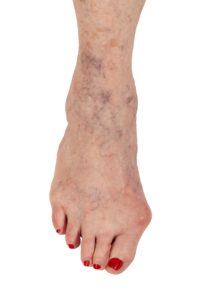
Venous reflux disease is a condition affecting the valves in the veins, which prevent blood from flowing backward.
When these valves are no longer working properly, the flow of blood is reversed, causing blood to pool in the veins. Venous reflux disease affects approximately 25 million Americans and commonly produces varicose veins.
Varicose veins are gnarled veins, which occur frequently in the legs, ankles and feet, with a dark bluish, purplish color. They can be highly visible and uncomfortable.
You are more at risk for varicose veins as you become older, have a family history, are overweight, a female, lack exercise and stand or sit for long periods of time. Varicose veins also are common in pregnant women.
Many people do not experience any symptoms of varicose veins. However, while they can be a cosmetic issue, if left untreated, they can pose a health risk.
Symptoms of varicose veins may include:
- pain in the legs.
- swelling.
- fatigue or weakness in the legs.
- ulcers in the skin near affected veins.
If the symptoms of varicose veins become bothersome, patients may seek treatment. Some patients may be able to improve the symptoms through lifestyle changes and with at-home treatments, such as elevation of the legs, wearing compression stockings and losing excess weight. However, these treatments won’t be adequate for every patient.
For patients who cannot resolve their symptoms on their own, professional treatment is available. Vascular specialists can provide effective treatment options for treating varicose veins with quick recovery time and minimal discomfort.
Radiofrequency ablation (RFA), a minimally invasive procedure used to treat varicose veins, is one treatment option for venous reflux disease. Under ultrasound guidance, radiofrequency energy is transmitted to the vein through a catheter, resulting in the closure of the vein. Unlike vein stripping, patients treated with RFA usually are able to resume activities in a day.
Venous reflux disease is progressive. Symptoms can worsen over time if left untreated and can have a significant negative impact on your life. It can lead to serious health problems, including inflammation, infections and chronic wounds. As an added benefit, legs receiving treatment for venous disease develop a smoother, more attractive appearance.
For more information, or to make an appointment, call (480) 835-6100. The Vein Center at Tri-City Cardiology Consultants is located at 6402 E. Superstition Springs Blvd., Suite 224.

